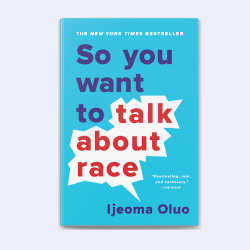Intersectionality and Privilege
What is Intersectionality?
The complex, cumulative way in which the effects of multiple forms of discrimination (such as racism, sexism, and classism) combine, overlap, or intersect especially in the experiences of marginalized individuals or groups.
In 1989, Professor Kimberlé Crenshaw was one of the first researchers to use the term "intersectionality" as a way to explain the oppression of African-American women.
What is Privilege?
A right or immunity granted as a peculiar benefit, advantage, or favor.
It's important to remember that a person is made up of many identities. This means that the person's privilege can vary based on those identities. For example, someone may be privileged due to their race or ethnicity, but due to their sexual orientation, they lack the same privilege as a peer that falls into that same race or ethnicity, due to society's biases towards their orientation.
Kimberlé Crenshaw on Intersectionality

Recommended Read: So you want to talk about race
In "So you want to talk about race," Ijeoma Oluo covers privilege, intersectionality, and other key topics that are important to general Diversity, Inclusion, and Equity conversations. Through her thoughtful nonfiction storytelling, Oluo also covers various marginalized groups, including race, gender, marital status, and disability.
